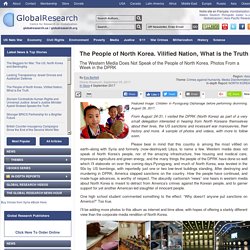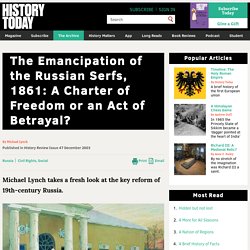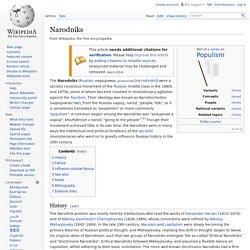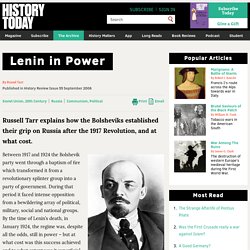

Untitled. Featured image: Children in Pyongyang Orphanage before performing drumming.

August 29, 2017. From August 24-31, I visited the DPRK (North Korea) as part of a very small delegation interested in hearing from North Koreans themselves about their lives, the US sanctions and incessant war manouevres, their history and more. A sample of photos and videos, with more to follow soon. Please bear in mind that this country is among the most vilified on earth–along with Syria and formerly (now-destroyed) Libya, to name a few.
1 Introduction. The Power of Orthodox Church. Enforcing Russian autocracy. The webserver at Alpha History has detected an adblocking tool, plug-in or browser extension on your computer or network.

Alpha History provides free textbook-quality content for teachers and students worldwide. We rely on advertising revenue to host, maintain, improve and expand our website. It is a condition of use that visitors to Alpha History’s website do not use tools or software that prevents advertisements from loading (see terms of use, 1.4). To access the Alpha History website, please undertake one of the following steps: * Disable or deactivate your adblocking software, tool or plug-in. Russian society. Tsarist government. An introduction to Russia. Orlando Figes' website. The Emancipation of the Russian Serfs, 1861: A Charter of Freedom or an Act of Betrayal? A 1907 painting by Boris Kustodiev depicting the muzhiks listening to the proclamation of the Emancipation Manifesto in 1861In 1861 serfdom, the system which tied the Russian peasants irrevocably to their landlords, was abolished at the Tsar’s imperial command.

Four years later, slavery in the USA was similarly declared unlawful by presidential order. Tsar Alexander II (1855-81) shared with his father, Nicholas I, a conviction that American slavery was inhumane. This is not as hypocritical as it might first appear. Alexander III. Alexander III unexpectedly came to the throne in 1881 on the assassination of Alexander II.

Alexander III was under no illusion that he could suffer the same fate as his father. He introduced repression of opponents as the corner stone of his reign. Narodniks. The Narodniks (Russian: народники, pronounced [nɐˈrodʲnʲɪkʲɪ]) were a socially conscious movement of the Russian middle class in the 1860s and 1870s, some of whom became involved in revolutionary agitation against the Tsardom.

Their ideology was known as Narodnichestvo (народничество), from the Russian народ, narod, "people, folk", so it is sometimes translated as "peopleism" or more commonly "populism". A common slogan among the Narodniks was "хождение в народ", khozhdeniye v narod, "going to the people".[1] Though their movement achieved little in its own time, the Narodniks were in many ways the intellectual and political forebears of the socialist revolutionaries who went on to greatly influence Russian history in the 20th century. History[edit] The Narodnik position was mostly held by intellectuals who read the works of Alexander Herzen (1812–1870) and of Nikolay Gavrilovich Chernyshevsky (1828–1889), whose convictions were refined by Nikolay Mikhaylovsky (1842–1904).
Failure[edit] George Plekhanov. George Plekhanov was born in Tambov, Russia on 26th November 1857.

As a young man he joined the Land and Liberty and was the party's main speaker at the famous Kazan Square rally in St Petersburg on 6th December, 1876. In October, 1879, Land and Liberty split into two factions. The majority of members, who favoured a policy of terrorism, established the People's Will. Plekhanov became the leader of the Black Repartition group that rejected terrorism and supported a socialist propaganda campaign among workers and peasants. Alexander III. Russian industrialisation. The webserver at Alpha History tells us you’re using an adblocking tool, plug-in or browser extension on your computer or network.

We understand that many people don’t like web-based advertising. Ads on websites can often be irrelevant, distracting and ‘in your face’. Without ads, however, our website would not exist – or it would not be free. Ads are how we fund the creation and delivery of our content. Joseph Stalin: The Struggle for Power. Throughout the summer of 1923, Lenin lay close to death, and a lull settled over the political struggle.

But the battle lines were forming in the Politburo and Central Committee. Trotsky seemed to hold the most powerful position, thanks to his close friendship with Lenin before the Soviet leader's strokes, but an opposition had already begun to emerge. Although Stalin would later be Trotsky's primary antagonist, for the moment the opposition included not only Stalin but also two other politicians: Lev Kamenev and G.E. Zinoviev, a leading Bolshevik who had been Lenin's closest aide during the Revolution. Together the three formed what was referred to as the "troika," or "triumvirate"; as Lenin inched closer to death, they launched a series of attacks on Trotsky in party meetings, drawing on his writings and speeches from his years as a Menshevik to attack him for disloyalty to his own movement. Young Stalin in pictures, 1894-1919.
Stalin at age 23. 1901.

On December 18, 1879, in the Russian peasant village of Gori, Georgia, Iosif Vissarionovich Dzhugashvili (later known as Joseph Stalin) was born. The son of Besarion Jughashvili, a cobbler, and Ketevan Geladze, a washerwoman, Joseph was a frail child. At age 7, he contracted smallpox, leaving his face scarred. Lenin in Power. Between 1917 and 1924 the Bolshevik party went through a baptism of fire which transformed it from a revolutionary splinter group into a party of government.

During that period it faced intense opposition from a bewildering array of political, military, social and national groups. People's Century Part 03 1917 Red Flag. Russian Revolution - 2017 History Lecture Series. Empire, War and the End of Tsarist Russia. <p>Browser does not support script. </p> Download : Audio Speaker(s): Professor Dominic Lieven Chair: Professor Janet Hartley Recorded on 29 October 2015 at Hong Kong Theatre, Clement House.
Rasputin. Last of the Tsars - 01. The Real Rasputin (Imperial Russia Documentary) Crisis & Revolution in Russia (1905) The Russian Revolution Timeline – The British Library. From the final years of the last tsars of Russia to the establishment of the Communist Party, learn more about the key events of the Russian Revolution. Key events: 1860s–1890s: The Khodynka Tragedy 1900–1916: 1905 Revolution and Bloody Sunday | Outbreak of First World War. Transformation of Russia in the Nineteenth Century. Russia Table of Contents The late nineteenth and early twentieth centuries were times of crisis for Russia. Not only did technology and industry continue to develop more rapidly in the West, but also new, dynamic, competitive great powers appeared on the world scene: Otto von Bismarck united Germany in the 1860s, the post-Civil War United States grew in size and strength, and a modernized Japan emerged from the Meiji Restoration of 1868.
Although Russia was an expanding regional giant in Central Asia, bordering the Ottoman, Persian, British Indian, and Chinese empires, it could not generate enough capital to support rapid industrial development or to compete with advanced countries on a commercial basis. Russia's fundamental dilemma was that accelerated domestic development risked upheaval at home, but slower progress risked full economic dependency on the faster-advancing countries to the east and west. Economic Developments Reforms and Their Limits, 1855-92 Vladimir I.
Custom Search. Security of the Tsarist state before 1905. Industrialization in Russia. Emancipation of the Serfs - Alex II - Causes and effects table in A Level and IB History. Judicial reform of Alexander II. Why did Alexander II emancipate the serfs? The Emancipation of the Russian Serfs, 1861: A Charter of Freedom or an Act of Betrayal? "Reform" in Russia (1855-1881) Summary. History - The Crimean War. Russia - Russia from 1801 to 1917. Russia - Russia from 1801 to 1917. Stonehenge Discovery 'Blows Lid Off' Old Theories About Builders Of Ancient Monument (VIDEO) From who built it to what it was used for, Stonehenge is surrounded by many enduring mysteries — and researchers from the University of Buckingham in England now say they’ve solved one of them. Pop in the age of the atomic bomb. Mémorial de la Shoah. On this day: The fall of Singapore.
Tumblr_mjdihoNbWh1qb50y9o1_1280.jpg (JPEG Image, 912 × 613 pixels) History Reference Center.
Ancient Earth globe. Eric Descheemaeker sur Twitter : "Astounding: for the first time since 1879, the Mont St Michel in Normandy has become an island again #AtlanticStorm. Download & Streaming : Moving Image Archive : Internet Archive. Movies eye favorite 2 comment 0 UContentPlayer-TVC-Default-10032021-fixsound Topic: UContentPlayer Programs in TV News Archive for research and educational purposes. Watch full-length feature films, classic shorts, world culture documentaries, World War II propaganda, movie trailers, and films created in just ten hours: These options are all featured in this diverse library! Items included in the Television News search service. This library of arts and music videos features This or That (a burlesque game show), the Coffee House TV arts program, punk bands from Punkcast and live performances from Groove TV.
Electric Sheep is a distributed computing project for animating and evolving fractal flames, which are in turn distributed to the networked computers, which display them as a screensaver. An analysis of news and public affairs independent from traditional corporate media is available from this diverse video library.
Favorite 0 Uplayer-tvc-17032021 Topic: Uplayer by Internet Archive. Chronology of Biology and Organic Chemistry. 29 Incredibly Useful Websites You Wish You Knew Earlier. There are so many wonderful websites around, and it is difficult to know each and every one of them. Dead Sea Scrolls. David Icke & Michael Tsarion The Rothschild & Rockefeller Wars & Zionism. Amazing video: Planets viewed from Earth as if they were at the distance of our moon.
Thailand. Malaysia. Outline of Liechtenstein. Pistes pour une régulation mondiale à inventer. « Unité, dualité, multiplicité. Vers une histoire à la fois globale et plurielle » Scientist claim to possibly have found Pyramid like structures in Antarctica - Think Research Expose.
WARNING - FALSE FLAG NUCLEAR ATTACK ON LONDON - Climate Changed. Wales - Education - Iron Age Celts - Factfile. Crime Scene. Ancestral Lines 2 clicks please.